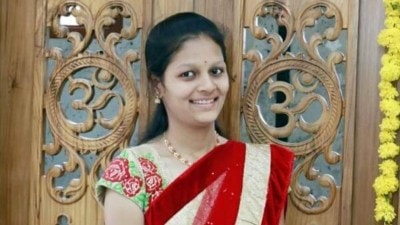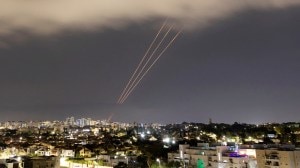- India
- International
Get back compensation paid to Dalits: Gujarat Judge to govt in three cases
The special judge passed orders to recover compensation, concluding that the “menace” of registering false complaints of Dalit atrocities to get compensation from the government “cannot be overlooked”.
 Special Judge Chirag Munshi, presiding over a special court in Deesa, ruled in all three cases, including two in which women accused upper-caste men of harassment, that the charges under the Atrocities Act were false. (Representational Image)
Special Judge Chirag Munshi, presiding over a special court in Deesa, ruled in all three cases, including two in which women accused upper-caste men of harassment, that the charges under the Atrocities Act were false. (Representational Image)
In three separate judgments since 2018, a Special Judge in Banaskantha district of Gujarat has directed the state Social Welfare Department to recover compensation paid to Dalit complainants in cases filed under provisions of the Scheduled Castes & Scheduled Tribes (Prevention of Atrocities) Act.
The judgments have left the Gujarat government in a bind with the Social Welfare Department determining that there is no legal provision in the Atrocities Act under which compensation once disbursed can be recovered. The government has, however, decided to file appeals in the Gujarat High Court.
Special Judge Chirag Munshi, presiding over a special court in Deesa, ruled in all three cases, including two in which women accused upper-caste men of harassment, that the charges under the Atrocities Act were false. The special judge passed orders to recover compensation, concluding that the “menace” of registering false complaints of Dalit atrocities to get compensation from the government “cannot be overlooked”.
In one judgment on February 8, 2019, the Special Judge recorded that the complainant had lodged a false complaint and stated: “…it is ordered to send a copy of this judgment to District Magistrate of Banaskantha and Deputy Director of Social Welfare Department of Banaskantha for implementation of this order. And specially, if the complainant/ victim in the case has been provided any financial compensation for filing of the complaint by the concerned office of the District Social Welfare Department, then it is proposed to the District Social Welfare
Department having jurisdiction to recover the said amount from the complainant/victim by any means or to take appropriate action as per law in that regard.”

The three cases were reported in 2014, 2016 and 2017. In two cases, the complainants are women, who accused upper-caste men of assault and harassment. In the third case, a Dalit man had complained against an upper-caste man for injuring his wife in a road accident and making derogatory remarks against him.
In the two cases where the complainant is a woman, the court acquitted the accused, concluding that the complaint had been false. In the third case, where the complainant received Rs 75,000 as compensation, the court acquitted the accused on the charges under the Atrocities Act, while convicting him on other charges such as rash driving and causing grievous injury.
The issue was even discussed in June this year at a high-power state-level vigilance and monitoring committee led by Chief Minister Vijay Rupani, which oversees the implementation of the Atrocities Act.
According to the minutes of the Rupani-led meeting, accessed by The Indian Express, Deputy Chief Minister Nitin Patel asked if there were any legal provisions to recover compensation paid to complainants, in the event that a case is not established.
The Deputy CM was informed by Principal Secretary (Social Justice & Empowerment) Manoj Aggarwal that no such provision exists in the Atrocities Act, and yet the court in Banaskantha had passed orders to recover the compensation. He also told the minister that an appeal would be filed after taking the opinion of the Legal Department.
“The court had ordered (the government) to recover (the compensation) as the case was not proved. However, as per the law, there is no provision for the recovery,” Deputy Director of Social Welfare Department in Banaskantha district H R Parmar told The Indian Express. “So, we are going to challenge the judgments before the Gujarat High Court. We will instruct the public prosecutor accordingly.”
Under provisions of the Atrocities Act, the state government pays monetary compensation to Dalit victims. The compensation amount varies depending on the gravity of the alleged offence: in the case of murder, it is Rs 8.25 lakh, rape or gang-rape Rs 5 lakh, sexual harassment Rs 2 lakh, preventing entry into religious, cultural or social places Rs 1 lakh and making derogatory remarks Rs 1 lakh.
Generally, 25% of the compensation amount is paid at the time of registering the FIR, 50% after the chargesheet is submitted and the remaining 25% when the case is proved in the trial court.
Government figures show that between October 2018 and May 2019, a total of Rs 16.88 crore has been paid as compensation to complainants in cases under the Atrocities Act.
Apr 19: Latest News
- 01
- 02
- 03
- 04
- 05






































